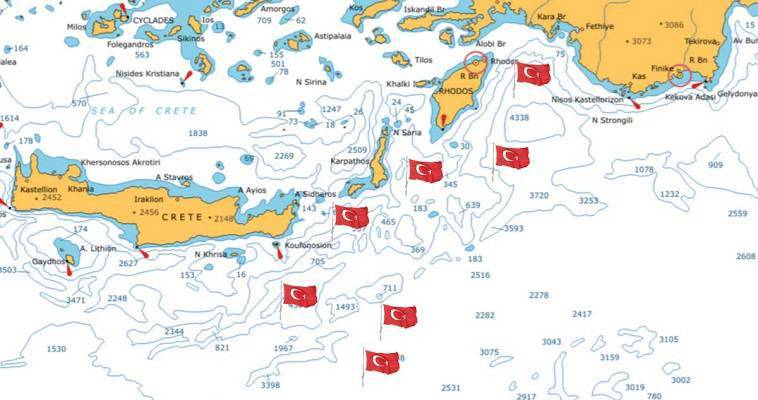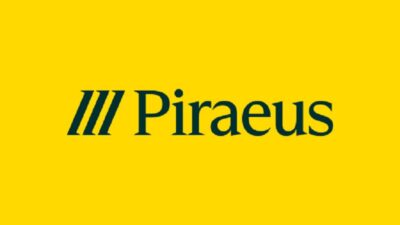Stavros Lygeros: Greek deterrence is hollow – Is a Mediterranean anti-Turkish alliance possible?
09/06/2020
By journalist Stavros Lygeros
It is a burning and most pressing question: What will Greece do if Turkey sends a seismic research ship, outside Greek territorial waters, but on top of the Greek continental shelf, as Ankara has officially announced? Will it be limited to reactions on a diplomatic level, or will it forcefully prevent the violation of Greek sovereign rights?
Greek defense minister Panagiotopoulos, recently implied that Athens will react vigorously, without saying more. The fact that Athens has not publicly defined a clear-cut red line is undermining its deterrent capabilities. Statements and actions have led Americans, Europeans and – most importantly – Erdogan to conclude that the Greek political system will not use its armed forces to thwart a Turkish fait accompli.
This is not arbitrary conclusion. One only need remember how Athens reacted to the Ankara-Tripoli memorandum, the infringement of “Oruc Reis” on the Greek continental shelf in February and of course how it is currently reacting. Convinced that he would not find himself facing the Greek Navy, after hesitations, weighing things, and factoring in reactions, Erdogan announced that research would be carried out east of the Rhodes-Karpathos-Crete arc. Having committed to this in front of Turkish public opinion and the international community, it is now very difficult for him to back down.
In attempting this, the Turkish president is repeating, to a T, what he has already done in the Cypriot EEZ. This time he has declared to do so on the Greek continental shelf. The first step were exploratory: “strolls” by the “Barbaros” research vessel in order to take stock of possible reactions. When he realized that third parties did not react and that Greece kept its distance (offered only diplomatic assistance to Nicosia), he took the second step: systematic research within the Cypriot EEZ, again without significant reactions.
The third step was to drill on an unlicensed offshore site at a remote point west of the Cypriot EEZ. When he again ascertained that the reactions were merely diplomatic and that the EU did not impose severe sanctions on his piratical state, he took the fourth step: he sent the drill to a maritime plot, the rights of which are held by France’s Total and Italy’s ENI.
Erdogan’s advantage
The challenge to France was straightforward. Macron sent naval forces to the area, but issued no ultimatums. It was clear that none of the actors were willing to use military means to stop the Turks. In fact, when gas prices plummeted, oil companies with exploitation rights in the Cypriot EEZ suspended their research, leaving Turkish drilling rigs to do as they saw fit.
As I have long pointed out, Erdogan is determined to use his military assets to advance his expansionist agenda. We saw it in northern Syria, where his regime has established three occupation zones. We saw it in Libya, where with Turkey’s intervention it changed the balance of power in the field and the course of the war. We saw it within the Cypriot EEZ and we will see it on the Greek continental shelf.
Erdogan’s determination to speak through actions rather than words gives him a tactical advantage. With their expansionist arbitrariness, the Turks have caused – more or less – concern and resentment in the West, Egypt, and Israel. This, however, does not mean much, as those most directly affected in this case (Greece) and concerned third parties are not prepared to use appropriate means to stop Turkey.
So long as the other players are mired on the diplomatic level, because they are afraid (Greece), or because their immediate interests are not directly affected (Israel, Egypt, USA, France), Erdogan will gain points, creating an irreversible acconmplishment. Tactical victories not only give him an edge, but also fuel his arrogance. Therefore, this is sign that may not know when to stop.
The trap of “overextension”
If this continues, it is likely that he will extend his forces on multiple fronts and fall into the trap of “overextension”, which is a recipe for strategic defeat. Why; Because the other players will be forced, at some point, due to circumstance, to reign in the “bully”. In other words, they will have to use the means that Erdogan is using with very unpleasant results for his country. This development is not necessarily teleological and is not yet in sight. And yet until that time, Turkey can still cause great damage.
The Republic of Cyprus does not have the capabilities to react en force. The same is not true, however, for Greece. So, we come back to the initial question: what will Athens do, when Ankara, citing the memorandum with Tripoli, conducts research on the Greek continental shelf? If Athens only reacts diplomatically, that is, if it tacitly accepts the fait accompli, it is mathematically certain that Turkish drilling will follow on the Greek continental shelf, even if no trace of a deposit is ever found.
Erdogan is not just trying to seize some energy field belonging to the Republic of Cyprus and Greece. At the same time, Erdogan seeks to consolidate the “Blue Homeland”, his vision of turning the heart of the Eastern Mediterranean into a “Turkish lake”. This is not in the interests of the other Mediterranean powers, but at least for now they are not intervening because they are not directly affected, and there is a tendency to approach the so-called powerful.
A Mediterranean anti-Turkish alliance
The Greek deterrent strategy has been so far undermined by Athens in a manner that has largely been self defeating. Hence, Turkey dares conducting investigations. At the point where things have reached, a Mediterranean anti-Turkish alliance with potential members France, Egypt and Israel would radically change the game, halting Erdogan’s expansionist intentions.
The task is undoubtedly very difficult, but it would be worth the effort. Athens, however, has avoided working in this direction. As it also avoided setting as a provision for signing the Greek-American military agreement (autumn 2019) a clause on a specific commitment by the USA that it will in practice protect the Greek national security.
It is true that regional military alliances have become post-war debuts. First because of the Cold War and then because of a cultural delusion that they are obsolete. The Greek political system is deeply immersed in this delusion. A recent example is an article by the National Security Adviser.
Without a clear red line
By not drawing a clear red line, by not making moves that would convince the Turks that Greece is determined to even fight, by not allying with a military alliance, Greece is in danger of losing control of developments and suffering a debacle. In Ankara, they believe that even if Athens tries to prevent naval maneuvers, it will not risk a major conflict. They believe that it will back down even if e.g. a Turkish frigate rams a Greek warship that will try to block the “Oruc Reis”. It must be noted that such a ramming had taken place against the Hellenic Coast Guard vessel “Gavdos”.
Erdogan has good reason not to want an all Greek-Turkish war, but he is flirting with the idea of a limited hot incident. This is because in such a local-limited hot episode, the Turkish side may have the initiative and therefore use it. Especially if the Turkih President anticipates that the Greek ruling elites, under the first pressure, will buckle down. And immediately after, with the help of the established Media, they will accuse the “nationalists” “ultra-patriots” for dragging Greece into a national humiliation! After all, Erdogan has played this game, and has played it to the extent that he has mastered it.
Conclusion: Erdogan has already ratcheted up the ante. He uses verbal threats or even the actual use of military force to advance his expansionist goals. The Ankara-Tripoli memorandum was signed so it could to be implemented. Greek Foreign Minister Dendias constantly says that this does not produce legal results, but we are very much in danger of seeing real results. So, for how much loger will Athens bury its head in the sand like the proverbial “ostrich”? Things, it seems, will soon reach a head …





